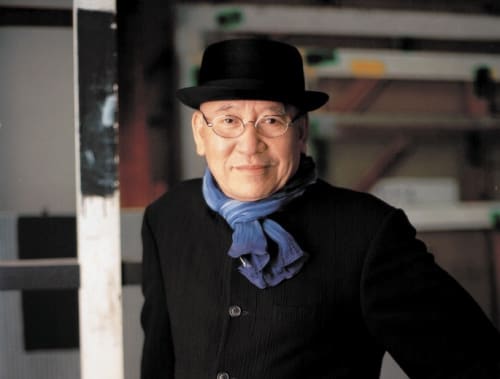On the morning of October 14th in Korea, Park Seo-Bo, an influential leader of the Korean Dansaekhwa movement, passed away at the age of 92.
Tina Kim, founder and principal of Tina Kim Gallery shares:
“We are deeply saddened about the passing of Park Seo-Bo. He was a pivotal figure who led the Dansaekhwa movement and contributed to the art community in post-war Korea when artists were struggling. He served as a commissioner for many international exhibitions and was a champion for Korean modern art. His influence will be felt for generations to come. We convey our profound condolences to his family and close friends. We at Tina Kim Gallery will miss his dynamism and energy, his unmatched charisma and commitment to Korean art.”
Born under Japanese occupation, Park Seo-Bo (b. 1931-2023) was one of the first artists to introduce abstraction into what was then a very conservative art world in Korea, balancing tradition with rising Western influence. Park’s steadfast commitment to pushing boundaries and embracing new vocabularies of expression has consistently resulted in new and influential bodies of work.
First developed in 1967, Écriture was one of Park Seo-Bo’s most prolific – a series of monochromes in which Park covered his canvas with a single color and manipulated the still-wet surface with repetitive, carving gestures – actions that resemble the writing of a script. While in earlier works he used a pencil or stylus to create these repetitive marks, beginning in the 1980s he introduced Hanji paper into the series, layering and scraping the pulp on the wet surface to create a unique sequence of sculptural lines that seem to float on top of the canvas. The resulting relief paintings evoke architecture and the phenomenology of seeing. In the early 2000s Park expanded his neutral palette and began using vibrant colors in his works influenced by the grandeur of nature.
We are grateful to Park Seo-Bo for his contributions to Korean modern and contemporary art. The inheritance he leaves behind in the art world is enduring and Tina Kim Gallery will continue to honor his legacy through research, exhibitions, and publications. Park Seo-Bo’s powerful works are permanently housed in major institutional collections such as the Museum of Modern Art, the Guggenheim, Hirshhorn, M+, and the Centre Pompidou.
Park Seo-Bo is survived by his wife and three children.

